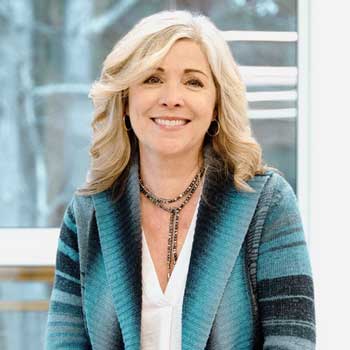by Barbara Barron | Posted March 8th, 2023 | Subscribe to this newsletter

But what happens next? Are there ways that we can be instrumental in making sure we hold onto and fully engage those key volunteers?
Yep. Here we go.
Have you subscribed to this newsletter yet? It only takes a minute.
Onboarding your new trustee
One of the most effective things we can do is create an excellent orientation process. I’ve done this at multiple schools, and it pays off handsomely in the near and long term. If your school doesn’t do this or doesn’t do this well (with your involvement), run – don’t walk – to advise that they start.
Some advice about an orientation that mirrors our human nature:
Do it right away. We tend to be the most highly engaged in a thing when it’s brand new. Schedule the orientation almost immediately after the new trustees are voted in. Don’t wait until the summer when we tell ourselves it’ll be quieter, and we’ll be more intentional. It won’t, and we won’t. Plus, it’ll be hard to get everyone to agree to a date and time then. Summer slow is real and we don’t want that energy attached to this important moment.
(Further, don’t hold off until the fall – when life speeds up, and this experience will get short shrift. Do it in May. Or early June. Groan! I know. Another event in May! Trust me, this one is worth it.)
Make it nice. Explain it will be a 3-hour meeting because it’s important and we’re gonna take our time to walk these valuable new leaders through a process that is chock-a-block. Arrange for amenities like a good room, comfy chairs, and snacks and drinks. Maybe get someone to host you at their home or in a great conference facility. Don’t just hold it in the same ol’ room they are going to spend countless hours over the next few years. Make it special.
Build a meaningful agenda. Bring in colleagues from the business, admission, technology, and any other key departments of your school about which you want (and need) new trustees to get very smart, quickly. Share the calendars and the key moments of impact so they learn the cycles we live and die by. Show them the specific activities and actions where they can be helpful. Once they see the best practices we strive to put and keep in place, the less likely they are to offer “suggestions” that are not helpful. You’re providing a deep dive into how the business side of the house works that they must understand to be helpful and effective.
What else? Let’s borrow a time-honored and winning process from the lower school. Let’s build a “buddy system.” But, because we’re all adulting here, we’ll call it mentoring.
Mentoring your new trustee
When you first joined a club or church, a yoga class, or a book group, didn’t it help to be introduced by someone already a member of the group? Didn’t it help to walk in and not feel alone? Who likes that?
Here’s some advice on your new mentor’s role:
Pair new trustees with trustworthy veterans of the board. Ask mentors to attend the orientation, at least at the end – for a bit – like lunch or drinks. Then ask the mentors to meet with their newbie at least once during the summer to build some connection and trust.
Ask mentors to call their mentee a week before each board meeting that first year. Ask if they have questions about the agenda or any of the reports to help them feel comfortable asking good questions. See if they are feeling up to speed on the committee(s) to which they are assigned. If something is off at the start, the mentor can help course-correct early. Or they can seek help, to ensure everyone stays on the road.
Mentors can also play a role if there are moments of dissent or tension at a meeting. Talking about it afterward and providing historical context can be so helpful. And keeps things from skewing negative.
Smart engagement
One of the panelists from our webinar shared a story about an alum who was about to end a first term of service without much engagement. The advancement director had the wisdom to ask the alum, who was a self-professed and experienced “techie guy”, to have a look at their systems. This was his jam and he was only too happy to get involved!
Guess what? He helped improve and streamline operations and data. He then went on to serve subsequent terms, with alacrity and impact.
The moral? Finding the right spot for each trustee can be part art and part science.
Here are a few other suggestions:
Develop a “portfolio” for each trustee. What kinds of projects are they interested in learning about, working on, and being accountable for? Dig deep.
Do annual self-reflection. As I’ve written, good boards hold themselves to account by completing self-assessments each year. This gives individual trustees the chance to comment on the workings of the board (for good or for needed improvement). If you’ve done #1 and every trustee has their own set of priorities, it’s a whole lot easier to reflect and assess how they are doing with those. Or not. Either way, more information is good.
Don’t assume. Ask. The Chair of the Committee on Trustees or the Board Chair ought to check in with all new trustees a few months into the first year. And then as a regular practice towards the end of the first term have a frank conversation about how this commitment is aligning with their professional and personal lives. Don’t we all want to be asked how it’s going? Letting trustees just roll into a second term is sloppy and unhealthy for the organization.
If there’s an issue, approach it straight away. Someone not attending meetings? Not responding to emails? Chatting about board business outside of the boardroom or going to staff for favors? Intervention needs to happen by the Chair, immediately. Share what you know so the Chair can do their job. Do not let things fester.
Celebrate and thank. Let’s recognize the service of trustees at those perfect and very obvious moments: end of the first year, end of the first term, and at the end of their service. When we begin and end things well, oftentimes even if the middle is a little messy, we have done the right thing for these volunteers and for our organizations. After all, they will be former trustees a lot longer than they are serving trustees. They are ambassadors in the wider community. What do we want them to say about serving our school?
Our organizations rely on the time, talent, and treasure of these good people. Taking care of them and helping them get engaged in positive and helpful ways from the start is part of our work. This is the work of not only the advancement office – though, as you well know by now, I believe we have a key role to play – but of the entire board.
Maybe share this article with them? Just a thought! 😉
Thank you for all you’re doing.
Barbara Barron

Share this post:
About the Author

BARBARA BARRON is one of the most respected and highly sought-after independent advancement professionals in the country, having worked with dozens of schools in every corner of the United States.
She has raised over $20 million for schools where she served as the Director of Development. Barbara is a New York Times bestselling author, speaker, and presenter who currently advises dozens of schools in various capacities. She is considered a thought leader in the world of advancement, with her writing widely shared by professionals in development offices worldwide.






